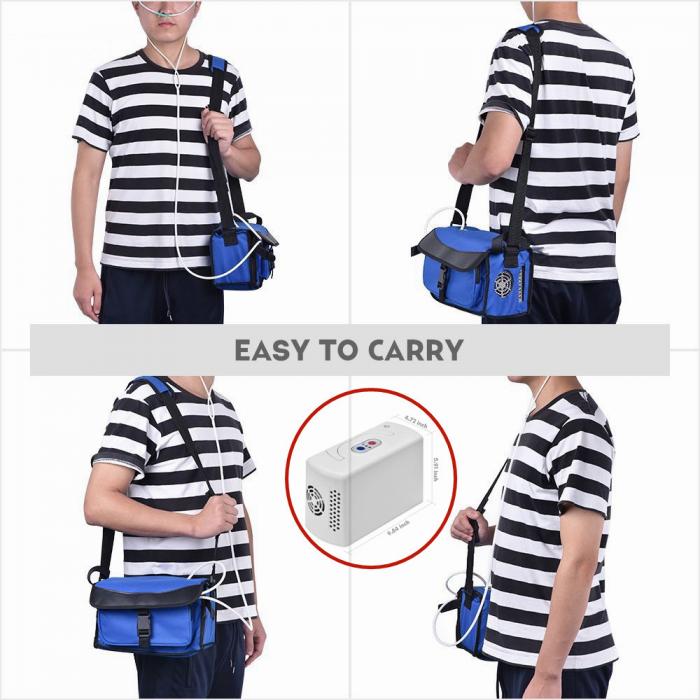portable oxygen concentrator (POC)

A portable oxygen concentrator (POC) is a medical device that filters the surrounding air, removes nitrogen, and delivers a concentrated, 90-95% pure oxygen supply to a user with a nasal cannula or mask. Its primary function is to provide supplemental oxygen for people with chronic respiratory conditions who need therapy while away from home, allowing them to maintain an active lifestyle by offering a lightweight and mobile oxygen source that can be powered by battery or vehicle power.
How it Works
Air Intake: The device pulls in ambient air from the atmosphere.
Filtering: Air is filtered to remove dust and other particles.
Oxygen Concentration: The air then passes through sieve beds, which trap the nitrogen and other non-oxygen gases.
Oxygen Delivery: This leaves behind a stream of concentrated, pure oxygen that is delivered through a nasal cannula or mask.
Key Features
Portability:
POCs are designed to be small, lightweight, and easy to carry, making them ideal for use away from home.
Power Sources:
They are typically powered by rechargeable batteries, but can also be recharged or powered using a car adapter or plugged into an electrical outlet.
Oxygen Delivery Modes:
Some POCs offer both continuous oxygen at a steady rate and "pulse dose" oxygen, which delivers oxygen in bursts each time the user inhales.
Convenience:
Unlike oxygen tanks, POCs do not run out of oxygen and only require access to a power source to keep working.
Purpose
Oxygen Therapy:
POCs provide supplemental oxygen to individuals with conditions like Chronic Obstructive Pulmonary Disease (COPD) who require more oxygen than they can get from normal air.
Improved Mobility:
By providing a compact and self-sufficient oxygen source, POCs enable patients to travel and participate in daily activities without being tethered to a stationary device.